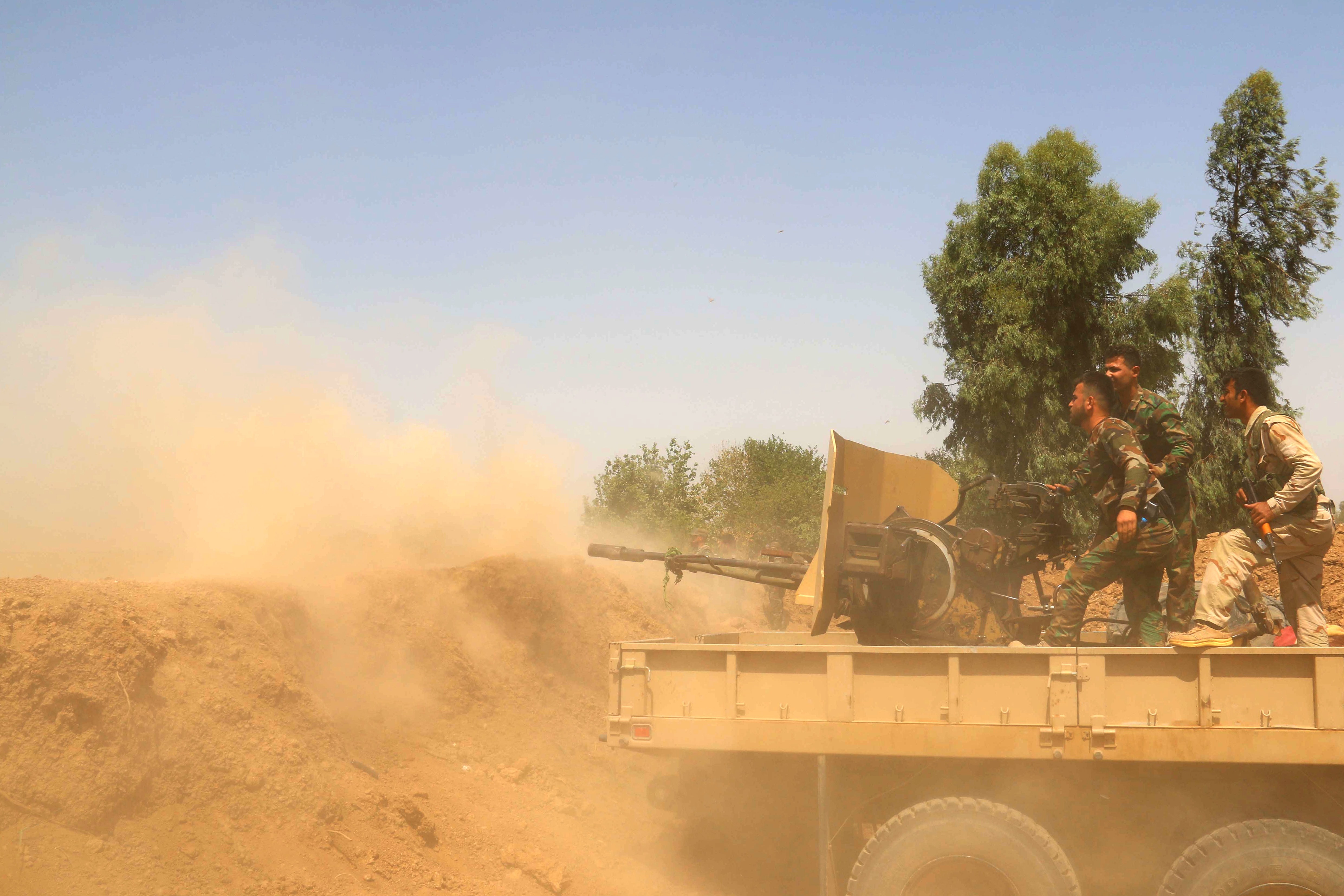ISIS likely used mustard gas on Iraqi Kurds, U.S. says


Islamic State has likely acquired banned chemical weapons and used them on Kurdish peshmerga fighters in Iraq last week, U.S. officials told The Wall Street Journal. Up to 60 peshmerga fighters experienced breathing problems and exhibited other signs of exposure to a blistering agent during a battle with ISIS on Wednesday near the town of Makhmour, about 40 miles southwest of Erbil, the Iraqi Kurdish capital, Kurdish and German defense ministry officials said Thursday.
The most likely blistering agent is mustard gas, a banned chemical first used in World War I. ISIS could have gotten hold of mustard gas in Syria, where weapons inspectors suspect President Bashar al-Assad hid small stockpiles when he agreed to hand over or destroy his chemical munitions in 2014.
If ISIS has chemical weapons, that would present a troubling escalation of its battlefield power, though how much is a matter of debate. "Mustard isn't VX or sarin," far more lethal nerve agents, a senior U.S. military official told The Wall Street Journal. "It has to be used in high concentrations to be fatal." But even a small amount is enough to bolster ISIS's "psychological warfare campaign," added Hamish de Bretton-Gordon, the former head of the British army's chemical weapons unit. "You mention chemical weapons, people immediately freeze and are irrational. That's why Islamic State wants to use them."
The Week
Escape your echo chamber. Get the facts behind the news, plus analysis from multiple perspectives.

Sign up for The Week's Free Newsletters
From our morning news briefing to a weekly Good News Newsletter, get the best of The Week delivered directly to your inbox.
From our morning news briefing to a weekly Good News Newsletter, get the best of The Week delivered directly to your inbox.
A free daily email with the biggest news stories of the day – and the best features from TheWeek.com
Peter has worked as a news and culture writer and editor at The Week since the site's launch in 2008. He covers politics, world affairs, religion and cultural currents. His journalism career began as a copy editor at a financial newswire and has included editorial positions at The New York Times Magazine, Facts on File, and Oregon State University.
-
 Why it’s important to shop around for a mortgage and what to look for
Why it’s important to shop around for a mortgage and what to look forThe Explainer You can save big by comparing different mortgage offers
-
 4 ways to save on rising health care costs
4 ways to save on rising health care costsThe Explainer Health care expenses are part of an overall increase in the cost of living for Americans
-
 How to financially prepare for divorce
How to financially prepare for divorceThe Explainer Facing ‘irreconcilable differences’ does not have to be financially devastating
-
 British warship repels 'largest Houthi attack to date' in the Red Sea
British warship repels 'largest Houthi attack to date' in the Red SeaSpeed read Western allies warn of military response to Iranian-backed Yemeni rebels if attacks on ships continue
-
 Houthi rebels claim Red Sea ship attacks
Houthi rebels claim Red Sea ship attacksspeed read Iran-backed Yemeni group vows to escalate aggression towards Israel-linked vessels in revenge for Gaza war
-
 Israel plans next phase of Gaza war as first hostages released
Israel plans next phase of Gaza war as first hostages releasedSpeed read After four-day ceasefire 'we will not stop' until destruction of Hamas, says Israel
-
 Mob storms Russian airport 'looking for Jews'
Mob storms Russian airport 'looking for Jews'Speed Read Plane from Israel surrounded by rioters chanting antisemitic slogans after landing in Russia's Dagestan region
-
 Tuberville's military promotions block is upending lives, combat readiness, 3 military branch chiefs say
Tuberville's military promotions block is upending lives, combat readiness, 3 military branch chiefs saySpeed Read
-
 Ukraine's counteroffensive is making incremental gains. Does it matter in the broader war?
Ukraine's counteroffensive is making incremental gains. Does it matter in the broader war?Speed Read
-
 US commissions first-ever Navy ship in a foreign port
US commissions first-ever Navy ship in a foreign portSpeed Read
-
 British spy chief, Wagner video suggest Prigozhin is alive and freely 'floating around'
British spy chief, Wagner video suggest Prigozhin is alive and freely 'floating around'Speed Read
